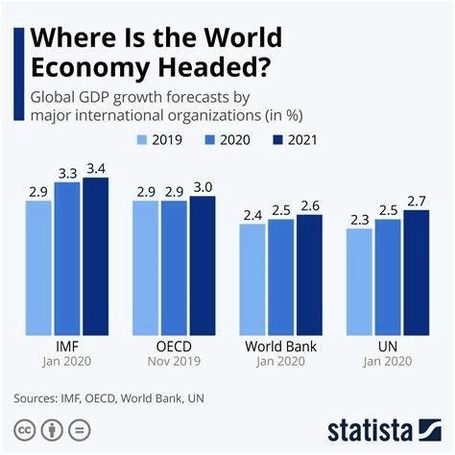
The global economy is the economy of all humans in the world, which includes all economic activities conducted both within and between nations?. The global economy is influenced by many factors, such as trade, production, consumption, investment, population, technology, environment, politics, and conflicts. The global economy is measured by various indicators, such as gross domestic product (GDP), inflation, unemployment, trade balance, and exchange rates.
The global economy is facing many challenges and uncertainties in 2024, due to the following events and trends:
– The Russian invasion of Ukraine in February 2022, which triggered a war that disrupted the supply and demand of energy, especially natural gas, in Europe and other regions. The war also increased geopolitical tensions and risks, and reduced consumer and business confidence.
– The persistent and broadening inflation pressures, caused by the surge in commodity prices, supply chain bottlenecks, labor shortages, and fiscal and monetary stimulus. Global inflation is expected to peak at 9.5% this year, before decelerating to 4.1% by 2024. Inflation is eroding the purchasing power and living standards of households, especially the poor, and posing challenges for central banks and policymakers.
– The slowdown in China, the world’s second-largest economy, due to a weakening property sector, continued lockdowns, regulatory crackdowns, and debt problems. China’s growth is projected to decline from 5.8% in 2022 to 4.4% in 2023. China’s slowdown has spillover effects on the rest of the world, especially on emerging markets and commodity exporters that rely on China’s demand.
– The tightening of monetary and financial conditions, as central banks in advanced economies, such as the US, UK, and Canada, have started to raise interest rates and taper their asset purchases, in response to rising inflation and growth. Higher interest rates and borrowing costs could dampen the economic recovery, especially for countries and sectors that are highly indebted or vulnerable to financial shocks.
– The uneven and incomplete recovery from the COVID-19 pandemic, which has left lasting scars on the global economy, such as lower potential output, higher poverty and inequality, and weaker social cohesion. The pandemic also exposed the fragility and interdependence of the global health system, and the need
